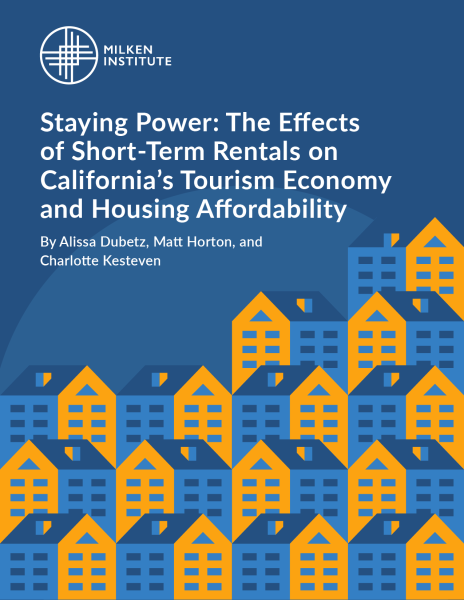
Staying Power: The Effects of Short-Term Rentals on California’s Tourism Economy and Housing Affordability
Short-term rentals (STRs) are critical to regional economies, offering unique and affordable experiences to visitors, generating significant tax revenue to support local governments, and providing hosts significant income. In some places where hotel inventory is limited due to land constraints or other development challenges, STRs expand the number of visitors a region can accommodate, helping bring more money into a region. STRs were also more resilient towards the COVID-19 pandemic due to increased preferences for more isolated, home-like stays—helping regions to maintain a level of tourism in a time when the world shut down.
But STRs are often cited as major contributors to growing housing shortages across California, which has led to various regions adopting or proposing strict regulation on STRs, such as permitting caps, zoning restrictions, and bans. Yet STRs account for about only 1 percent of California’s housing stock and most are expensive single-family homes that would not otherwise add to needed affordable housing supply. STRs are not a significant driver of increasing housing unaffordability and availability, which is instead driven by decades of underdevelopment, especially of affordable multifamily units. Furthermore, skyrocketing housing costs in large cities like Los Angeles and San Francisco and increased remote work resulting from the pandemic are pushing people out to more affordable, rural communities.
Implementing more impactful and innovative strategies is needed to address housing shortages that lead to sustainable growth. Through extensive research and stakeholder engagement, this report, from the Center for Regional Economics and California Center, recommends strategies to increase the supply of workforce and affordable housing in a manner that does not hinder regional tourism growth.


